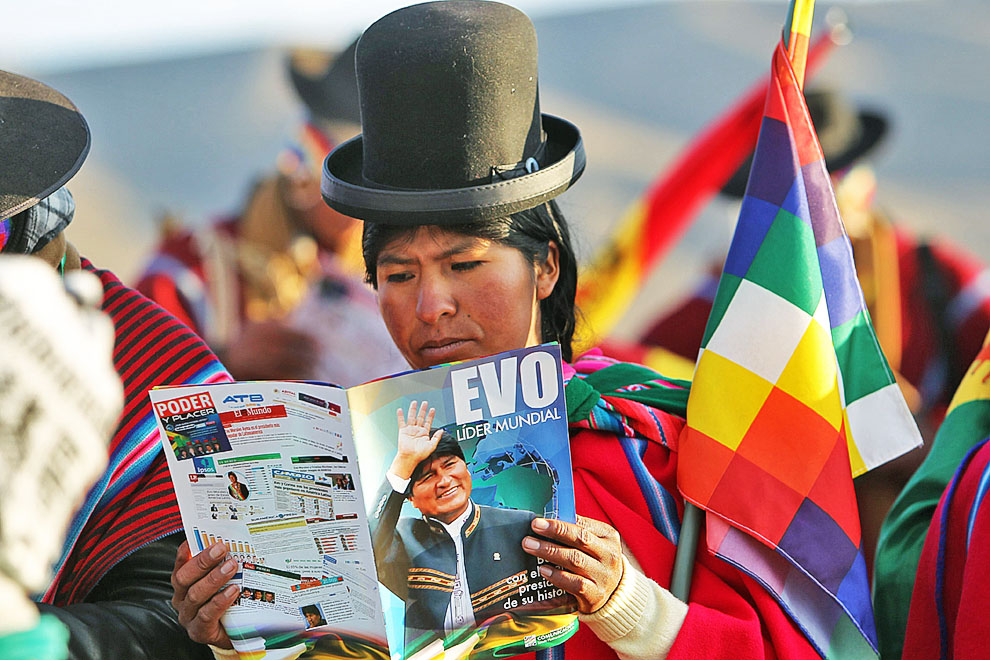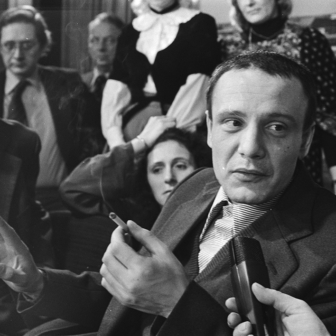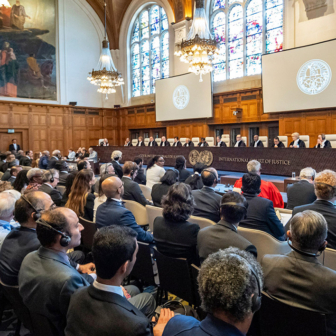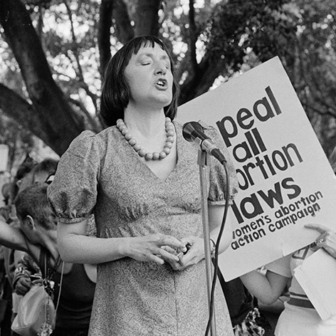It has already been an eventful year for Evo Morales. On 23 January, after a decade in power, Evo – as he is popularly known – became the longest-serving president in Bolivian history. A month later, on 21 February, he suffered his first major political defeat as president when around 51 per cent of Bolivians said no to his desire to run again for re-election in 2019, which required a constitutional amendment.
But that narrow defeat doesn’t take away from the profound social, cultural, economic and political changes Bolivia has experienced under Morales, an indigenous Aymara, former union leader and school dropout. In a country where the poor and the indigenous are the majority, Morales made the interests of those two groups the raison d’être of his “socialist indigenous” movement.
In fact, the voters of Bolivia did Morales a considerable favour by curbing his ambition. If the history of governments in the country’s neighbourhood tells us anything, it’s that an orderly change of leader – no matter how popular the incumbent – is a vital step in the development of a mature democracy. And Morales’s reputation can only be enhanced if he participates, even reluctantly, in that process.
The black bowler hat that balances on the head of the Chola – once a racist label for Bolivian Aymara or Quechua indigenous women – stays firmly in place despite the rough take-off by flight BoA1305 from Cochabamba to La Paz. When the seatbelt sign is turned off ten minutes later, she takes off her hat and smooths her plaited, waist-long hair. She makes sure her exquisite multicoloured manta (shawl) is firmly strapped to her upper body, flattens her bright blue and purple pollera (puffed skirt) and prepares to disembark.
There was a time when a Chola wouldn’t have been allowed in a Bolivian airport, let alone inside a plane. The presence of this woman, and others like her, on a domestic flight tells a lot about the deep transformations Bolivia has experienced over the past ten years.
Evo Morales established BoA, Boliviana de Aviación, as the national airline in 2007. It is state-owned, and flights are much more affordable than they were when other airlines dominated. Once a privilege reserved for the white elite, now those on modest incomes can fly within Bolivia, avoiding the nightmarish roads of a geographically tortured, landlocked country, and beyond.
Sixty per cent of Bolivia’s ten million people are indigenous. Yet this majority has historically been marginalised and scorned. “Brother President brought us dignity and pride,” says Filomena Kori, an indigenous street vendor of marraquetas, the traditional bread of La Paz. She no longer fears the police in full riot gear who keep a sharp eye on Plaza Murillo, the central square where the government house stands. “Before Brother President, we couldn’t even enter the plaza, the police would kick us out and call us dirty Cholas,” Kori tells me.
On 23 January she is back in Plaza Murillo, not selling marraquetas this time, but there to commemorate a decade under Morales. As the morning sun had emerged from the clouds earlier that day, thousands of colourfully dressed indigenous people began assembling in front of the presidential palace, elegantly called Palacio Quemado, or Burnt Palace. They had also come to celebrate one more year of the “new Bolivia,” a kind of racial-identity rebranding that the country has gone through since the new constitution was enacted in 2009.
The country, now called the Plurinational State of Bolivia, constitutionally recognises the existence of the thirty-six indigenous first nations and their linguistic and cultural traditions. Spanish was once the only official language, but now there are three: Quechua, Aymara and Spanish. In this sense, Bolivia – as a single, white, hegemonic ethnic entity – ceased to exist in 2009.
Evo Morales and the Movement to Socialism, or MAS, didn’t emerge out of the blue. Their incubation period goes back to the 1994 Law of Popular Participation, inspired by a wave of democratisation and decentralisation throughout Latin America. The law allowed for the creation of rural and indigenous municipalities with considerable economic and political power. To the chagrin of many members of the white elite, they became hubs of political and administrative capability and activism.
Morales is the product of this phase of indigenous and rural empowerment. He is also a product of the devastating crisis of the mining industry in the 1980s, when thousands of jobless miners were forced to become coca farmers in order to survive. Morales was one of them. Once a miner in Bolivia’s western department of Oruro, he moved to the country’s east and soon became a union leader.
His political education began there, in the midst of the unforgiving conditions of the coca plantations and under the constant menace of the US anti-coca military campaign of the 1980s and 1990s. More than once Morales has said that to penalise the coca leaf “was a historical error.” For him, the coca leaf was not just a commodity; it was a cultural product to be employed as a “battle flag” among the indigenous and rural population.
Evo Morales is a skilful political leader who appeared in the right place at the right time. His progress to power coincided with a crisis in the neoliberal economic model implemented in the region by US-backed military dictators, and with the collapse of Bolivia’s traditional parties. He offered an alternative to Bolivia’s entrenched system of democracia pactada, an agreement among the established parties of the left and the right that allowed them to rotate power.
Political irritation – and abject poverty – turned into political optimism when Morales walked into the Palacio Quemado for the first time in 2006. What the country wanted was a new kind of leadership. Morales has also reinvented the country’s economy. The nationalisation of Bolivia’s considerable mining resources – gas and oil, among others – has occurred in parallel with the renegotiation of contracts with transnational mining companies.
But Morales is not a counterpart of Chile’s Salvador Allende. Despite his anti-imperialist turn of phrase, he has established a hassle-free relationship with mining companies and other multinationals. The relationship has provided welcome revenue to fund large-scale educational and health projects, projects that have greatly alleviated poverty.
And while the drop in commodity prices has caused some trouble for the government, the country has been growing at a steady 5 per cent. With unemployment at a low 2.7 per cent last year, the International Labour Organization has placed Bolivia among the best-performing countries in terms of job opportunities.
Evo Morales has effectively governed without an opposition. No political parties have been able to challenge him. In fact, Bolivia doesn’t have functional political parties in the sense that countries like Australia do. Its political trajectory has been driven by the caudillos – charismatic, authoritarian and populist strongmen (no female caudillos in the region yet).
As Henry A. Pinto Dávalos, a legal academic and commentator for the Cochabamba newspaper Los Tiempos, observes, “the tendency toward the charismatic caudillo is a fundamental feature of Bolivia’s political history.” And Morales is definitely Bolivia’s twenty-first-century caudillo.
And here lies the problem: the caudillo is a slippery-slope political tradition in Latin America. The caudillo’s appetite for power is ceaseless. And Morales is no exception. Well before the 21 February referendum, discomfort about Morales’s aspirations to remain in power was being expressed sotto voce.
Victor Quispe has been an Evista – as Morales’s adherents are known – for a very long time. “Perhaps too long,” he tells me thoughtfully. He has built a respectable livelihood as a hairdresser in Sucre, the genteel colonial city Spanish conquistadores founded in 1538.
The brisk movement of his scissors over my hair is punctuated by lengthy monologues about Morales. “Enough of Evo,” he says. “This is the government of Evo by Evo and for Evo.” He asks me whether I have seen the YouTube video of Evo Morales ordering one of his bodyguards to tie up his shoelaces. Yes, I say, I have seen it. “You see? That is the real Evo. Arrogant.” No need to ask – clearly he voted no on 21 February.
The uneasiness can be traced back to 2014, when Morales was elected for the third time. Since then the quality of his leadership has declined, and one concern – among many – is that the MAS has metamorphosed from being an indigenous and popular movement to being a vehicle for Morales.
Distinguished Bolivian historian and sociologist Silvia Rivera Cusicanqui believes that Morales has created a “new oligarchy, a new bourgeoisie” that is clinging tooth and nail to the financial and political power acquired in the last decade. There is, she says, “a fear of an authoritarian drift and power monopoly.”
The decline is also evident in the frequent revelations of corruption and abuses of power, and none of them is bigger than the 2015 corruption scandal – the largest since Morales came to power. The case relates to US$6.8 million illegally siphoned from the Indigenous Fund to the private accounts of high-ranking members of the MAS. Around 250 people, including one former minister, two senators, and union and indigenous leaders, are being prosecuted.
When Morales called the ill-fated 21 February referendum, many Bolivians expressed their discomfort to me in three words: “Evo blew it.” And it was said with a sense of sadness. After all, Morales has been good for Bolivia. But any Latin American leader who tries to overstay in power is seen as bad news. The defeat of Morales in the 21 February referendum is a good thing for democracy in Bolivia. •




